A couple of shows I enjoy, 'Sherlock' and 'Alphas', employ these weird floating visualizations of the internet. 'Alphas', a show about mutant counter-terrorism agents, has a character whose only job is to use his ability to 'see' data streams. 'Sherlock' uses the technique in a scene where the irascible detective demands privacy so he can go to his 'mind palace', a sort of mental Google.
I wondered why this interested me so much, and then I remembered a passage from Homer: the Poetry of the Past. Here's a taste:
The way [oimai, "paths"] is used in early Greek indicates that it was a … term for the … themes of epic…. Apparently… the relative fixity and stability of themes was figured in Homeric language by describing them as if they were tracks cut into some landscape. The process of singing was thus a progress, and Hesiod could sum up his election as a poet by saying that the Heliconian muses "made me walk upon [the path] of singing." To proceed from one topic of heroic song to another was to "move along" the paths of song, expressed in another apparently technical word, _metabaino_, to pass from one place to another. (42-43)
Travel was antiquity's metaphor for mentally cataloguing information, whereas disembodied text and images seem to be our way of envisioning this process. Our minds really are reshaped by changing methods of communication.
Pin It
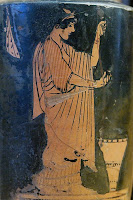




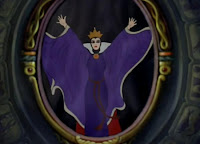
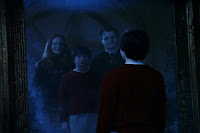




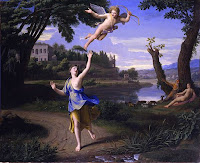
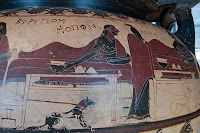
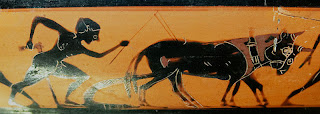


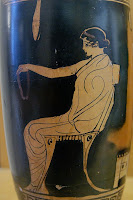
-2.jpg)


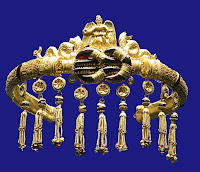_300_bC.jpg)



